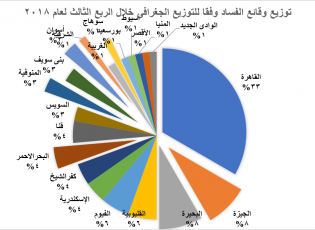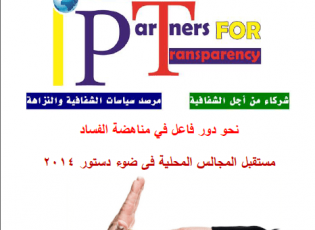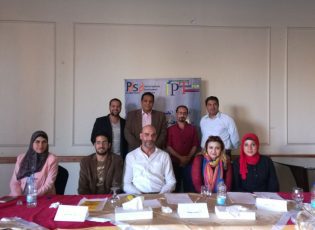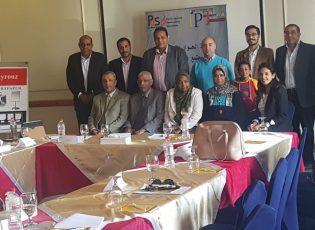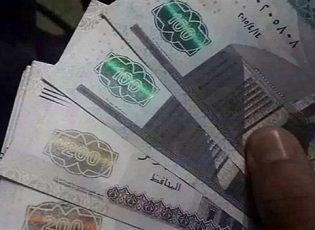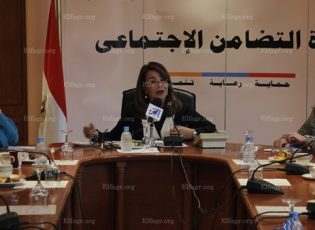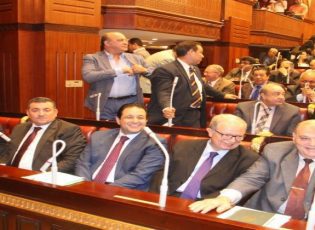The report focused on monitoring and analyzing legislative and procedural developments related to combating corruption, as well as counting the facts that were reported by various media outlets during the month of August 2015.
In August 2015, the monitoring process revealed 104 incidents of corruption, an increase of 46% than what was recorded in July 2015, which reveals a remarkable increase in the rates of detection of corruption crimes.
The report revealed that the month of August 2015 did not witness the issuance of new anti-corruption legislation or laws, but the most prominent feature was holding some sectoral meetings in some governorates and ministries to discuss plans and perceptions related to the implementation of the anti-corruption strategy, as well as various statements by government officials that included assurances of the need to combat Corruption, and linking it to development efforts and investment attraction.
The report pointed to the continued “absence” of integrated legislative interventions that could address the phenomenon of corruption, and despite the emergence of the ministries and governorates ’interest in discussing the mechanisms for implementing the anti-corruption strategy, these discussions and meetings did not result in identifying specific mechanisms and developing specific plans to activate the strategy.
On the other hand, the Administrative Control Authority and the Administrative Prosecution Authority are still working almost alone in this regard, with the continued absence of mechanisms and channels for the real and effective participation of other societal parties, such as civil society and the media, in combating the phenomenon of corruption.
The report revealed that the Ministry of Supply had witnessed the highest rate of corruption incidents during this month, with a score of 20, after that the local authority was ranked second with 13 incidents.
It is worth noting that the Partners for Transparency Foundation (PFT) is a non-governmental organization, declared in accordance with the provisions of Egyptian law, that takes into account independence and neutrality “politically” and “ideologically”. The Foundation works within the framework of helping society to consolidate and implement the values and practices of integrity, transparency, accountability, and access To achieve comprehensive “human” development and respect for human rights, and to build a system of good governance, based in its work on an intellectual and legal framework closely related to the international system for the protection of human rights, the axioms of social development, and the standards of good governance.
Short link: https://pfort.org/en/?p=239




